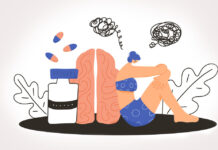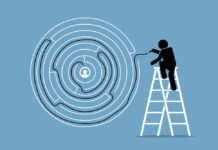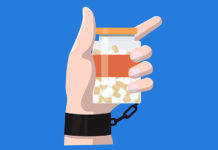A Different Psychiatry Is Needed for Discontinuing Antidepressants
The problems related to the use of antidepressants cannot be solved by an oversimplified psychiatry brainwashed by the pharmaceutical industry.
Mental Health Survival Kit, Chapter 4: Withdrawing from Psychiatric Drugs (Part 6)
Peter Gøtzsche gives advice on what withdrawal symptoms may look like and explains the dangers of—and alternatives to—forced treatment.
Mental Health Survival Kit, Chapter 4: Withdrawing from Psychiatric Drugs (Part 5)
Withdraw from psychiatric drugs at your own speed—according to what you feel. Don’t reduce again before you feel stabilised on the previous dose.
Mental Health Survival Kit, Chapter 4: Withdrawing from Psychiatric Drugs (Part 4)
Psychiatrists have made hundreds of millions of people dependent on psychiatric drugs and yet have done virtually nothing to find out how to help the patients come off them again.
Mental Health Survival Kit, Chapter 4: Withdrawing from Psychiatric Drugs (Part 1)
Very few doctors know anything about withdrawal and make horrible mistakes. If they taper at all, they do it far too quickly because the few guidelines that exist recommend far too quick tapering.
Current Anti-Stigma Campaigns Hinder Withdrawal from Psychotropic Medication
Anti-stigma campaigns reinforce a belief that people with mental health issues must have treatment and thus, push discussion of withdrawal and negative aspects of psychiatric drugs into anonymous spaces.
Online Experts on Withdrawal
Online communities are stepping in to help people facing withdrawal effects amass information and receive support for their withdrawal experiences.
The Reckoning in Psychiatry Over Protracted Antidepressant Withdrawal
Medically-induced harm—affecting tens of millions of people worldwide—has taken the field decades to take seriously.
How Academic Psychiatry Minimized SSRI Withdrawal
If academic psychiatry is evidence-based, why did it take two decades to recognize SSRI withdrawal as widespread and chronic among patients?
The Review on Antidepressant Withdrawal That Cochrane Won’t Publish
Peter Gøtzsche and Anders Sørensen on trying to get a review of methods for safe antidepressant withdrawal published in Cochrane: "They sent us on a mission that was impossible to accomplish" to "protect the psychiatric guild."
Holistic Approaches: A Proven Treatment for Psychotropic Drug Withdrawal
Published in the peer-reviewed journal Advances in Mind Body Medicine, this case series is the first of its kind to document the methodology employed in the successful discontinuation of a range of psychotropic medications, with holistic support interventions providing long-term mood support.
Psychiatric Drug Withdrawal in Spain
My study, in which I slowly withdrew people from prescribed antipsychotics and antidepressants, found that it is possible to decrease both spending on psychiatric drugs and patients' chronic exposure to them. In general, the drug-reduction process was well-tolerated and well-accepted among those treated.
Helping People Come Off Medication—Bad for Business?
The message in journal editorials, comments and opinion articles, is that 'this new study shows great promise' and that 'we need further research'. My interpretation is: 'give us the money and we will be happy to carry this out'. With the implied promise that, once this new research has been done, we will get a better world. Sadly this is rarely ever the case.
The New Yorker Peers into the Psychiatric Abyss… And Loses Its Nerve
The New Yorker's story on Laura Delano and psychiatric drug withdrawal is a glass-half-full story: It addresses a problem in psychiatry and yet hides the deeper story to be told. A story of how her recovery resulted from seeing herself within a counter-narrative that tells of the harm that psychiatry can do.
How Long Does Antidepressant Withdrawal Last?
The patient experiencing the pain of withdrawal believed that they would feel better when they stopped taking their antidepressants. After all, they’re under the care of a board-certified medical professional who has vowed to do no harm. But despite those reassurances, they find themselves in a world of hurt.
Antidepressant Withdrawal: An Unknown Disorder?
Antidepressant withdrawal is no longer an unknown disorder since knowledge on this topic has grown enough to be translated into practice. As proposed by George Engel in 1977, medical doctors, including psychiatrists, can observe and listen to their patients and develop a program to treat withdrawal and restore health.
Envisioning Psychiatric Drug Freedom
Psychiatric meds can shut down the emotions and consciousness enough to make it possible to tolerate dynamics that would inspire rage or surges of empowered activity without the meds. It can be helpful to look closely at these blocks and start to create a map to freedom, understanding that it is a complex process that involves not only the physiology of the body of the individual taking meds, but the architecture of the social system around that person.
10 Things I Learned in 5 Years Consulting With People Coming Off Psych Drugs
It's been over 5 years since I started offering non-medical consultations to people in the process of coming off or hoping to come off psych drugs. I wanted to share here some things I have learned in this process. Despite how far we have come, we have a long way to go in the quest to liberate all who wish to be liberated from psychiatry.
A Tale of Two Studies
With increasing evidence that psychiatric drugs do more harm than good over the long term, the field of psychiatry often seems focused on sifting through the mounds of research data it has collected, eager to at last sit up and cry, here’s a shiny speck of gold! Our drugs do work! One recently published study on withdrawal of antipsychotics tells of long-term benefits. A second tells of long-term harm. Which one is convincing?
A Massachusetts Benzo Bill That Mandates Informed Consent
H. 3594 would require pharmacists to distribute pamphlets containing information on benzodiazepine misuse and abuse, risk of dependency and addiction, handling and addiction treatment resources. This would be a major legislative response to the prescribing patterns for these drugs today.
Learning About Psychiatric Drug Withdrawal
We held the first course ever on psychiatric drug withdrawal on 12 June 2017 in Copenhagen. The course was open to patients, relatives, psychologists, doctors and other social and healthcare workers, and 77 people participated.
How to Avoid Severe SSRI Withdrawal Symptoms?
After long-term use, most people are going to have serious symptoms when stopping SSRIs. Many people are going to have transient, mild to moderate difficulty and some are going to end up falling down the akathisia rabbit hole. That is a long, difficult drop.
Stopping the Madness: Coming Off Psychiatric Medications
Millions of patients find themselves caught in the web of psychiatric sorcery - a spell cast, hexed, potentially for life. They are told that they have chemical imbalances. They are told that the most important thing they can do for themselves is to "take their medication," and that they will have to do so "for life." Most egregiously, patients are sold the belief that medication is treating their disease rather than inducing a drug effect no different than alcohol or cocaine. That antidepressants and antipsychotics, for example, have effects like sedation or blunting of affect, is not a question. That these effects are reversible after long-term exposure is.
What You Need to Know Before Starting a Drug for a Mental Health Problem
In a belated new-year blog, I thought it would be useful to set out what I think someone needs to think about if they are considering taking a drug for a mental health problem, especially if they think they might end up taking the drug for a long time. These are the questions you might want to ask your doctor if you take a ‘drug-centred’ approach to the use of drugs in mental health.
Antidepressants and Pregnancy: Who Says They Are Safe?
Depression during pregnancy is an important issue. Depression should not be ignored and depressed pregnant women deserve good treatment and care. Part of that good care, though, is providing them with full and correct information. I care for pregnant women taking antidepressants on a daily basis and too often they tell me that the only counseling they received about the medication was, “my doctor told me it’s safe in pregnancy.” This post will review the evidence in this area and address the counterarguments.

































